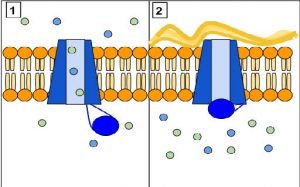Biomarkers of cystic fibrosis for better screening and therapeutic treatments

Tech ID
14-069
Inventors
P. Britz-McKibbin
Patent Status
US Patent 10768183
Stage of Research
Proof of principle data available
Contact
Sunita Asrani
Associate Director
Business Development and Copyright
Abstract
Cystic fibrosis (CF) is a complex multi organ disease that is among the most common life-shortening genetic disorders affecting the western world. Mutations to the cystic fibrosis transmembrane conductance regulator (CFTR) gene results in abnormal secretory glands that impact respiratory, digestive, and reproductive systems of CF patients. Newborn screening for early detection of CF currently relies on population-based genetic testing but lacks specificity resulting in false-positives and widespread carrier identification, which contributes to unnecessary follow-up testing. Thus, new biomarkers are urgently needed to improve the performance of CF screening that may also serve to predict disease progression and treatment responses to therapy on an individual level.
The discovery is related to the identification of a panel of CF-specific biomarkers from blood spot extracts and sweat samples. Using tandem mass spectrometry (MS/MS) capabilities, nontargeted metabolite screening of CF patients revealed new metabolites and their aberrant metabolic pathways from asymptomatic infants. Retrospective analysis suggests that this technology is selective and sensitive to identify and stratify CF patients early in life based on their characteristic metabolite profile that is complementary to genotyping and sweat chloride testing. Additionally, a new therapeutic target for CF therapy may avoid recurrent lung infections has been discovered that is orthogonal to orphan drug development largely based on CFTR modulation therapy.
Applications
- Better differentiation of affected from unaffected CF infants
- Deeper insight into underlying mechanisms of disease pathophysiology and disease progression
- Understand function of CFTR mutations of unknown or variable clinical significance
- Guide discovery of new molecular targets for drug development
- Predict and evaluate treatment responses to therapy
Advantages
- Better performance of primary screen for accurate CF diagnosis
- Improved functional testing of CFTR mutation status
- More reliable pre-symptomatic diagnosis will reduce health care costs due to follow-up testing of unaffected CF infants
- Novel drug therapy aimed to reduce bacterial biofilm, chronic lung inflammation and pulmonary dysfunction in CF later in life

